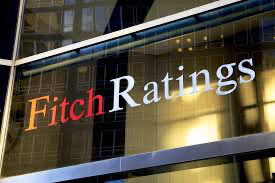
Adnan Adams Mohammed
Ghana’s economy is predicted to leap in growth from 2.9 percent recorded in 2023 to 5.5 percent of Gross Domestic Product, (GDP) in 2024.
The predicted growth, by Fitch Solutions, if achieved will be a three-year high post COVID.
According to the latest data from the Ghana Statistical Service, the economy grew by a robust 6.9% year-on-year in the second quarter of 2024, following a solid 4.8% growth in the first quarter.
The UK-based firm attributed this acceleration in the second quarter largely to stronger industrial output, driven by mining and quarrying, and a continued recovery in the construction sector.
In terms of expenditure, the growth was supported by an 8.5% rise in private consumption and a 12.6% increase in exports.
Looking ahead to the second half of 2024, Fitch expects growth to remain strong, although it will decelerate from the high recorded in the second quarter.
This outlook is based on two key factors. First, the strong export growth seen in the second quarter is unlikely to continue in the latter half of the year.
The surge was partly due to a recovery in international oil sales, boosted by robust crude production in the first half of 2024.
However, this recovery appears to have peaked, leading to slower growth rates for exports in the coming months.
Also, Fitch expects private consumption growth to moderate.
In 2023, private consumption surged by 18.7% and 19.2% year-on-year in the third and fourth quarters, creating a high base that will result in slower growth in the second half of 2024.
Despite this, Fitch noted that strong consumer fundamentals suggest healthy spending will continue.
Data from the Bank of Ghana showed a 21.1% year-on-year increase in mobile money transactions in June 2024, along with a 42.5% rise in new payment card issuances.
Adnan Adams Mohammed
Ghana’s economy is predicted to leap in growth from 2.9 percent recorded in 2023 to 5.5 percent of Gross Domestic Product, (GDP) in 2024.
The predicted growth, by Fitch Solutions, if achieved will be a three-year high post COVID.
According to the latest data from the Ghana Statistical Service, the economy grew by a robust 6.9% year-on-year in the second quarter of 2024, following a solid 4.8% growth in the first quarter.
The UK-based firm attributed this acceleration in the second quarter largely to stronger industrial output, driven by mining and quarrying, and a continued recovery in the construction sector.
In terms of expenditure, the growth was supported by an 8.5% rise in private consumption and a 12.6% increase in exports.
Looking ahead to the second half of 2024, Fitch expects growth to remain strong, although it will decelerate from the high recorded in the second quarter.
This outlook is based on two key factors. First, the strong export growth seen in the second quarter is unlikely to continue in the latter half of the year.
The surge was partly due to a recovery in international oil sales, boosted by robust crude production in the first half of 2024.
However, this recovery appears to have peaked, leading to slower growth rates for exports in the coming months.
Also, Fitch expects private consumption growth to moderate.
In 2023, private consumption surged by 18.7% and 19.2% year-on-year in the third and fourth quarters, creating a high base that will result in slower growth in the second half of 2024.
Despite this, Fitch noted that strong consumer fundamentals suggest healthy spending will continue.
Data from the Bank of Ghana showed a 21.1% year-on-year increase in mobile money transactions in June 2024, along with a 42.5% rise in new payment card issuances.